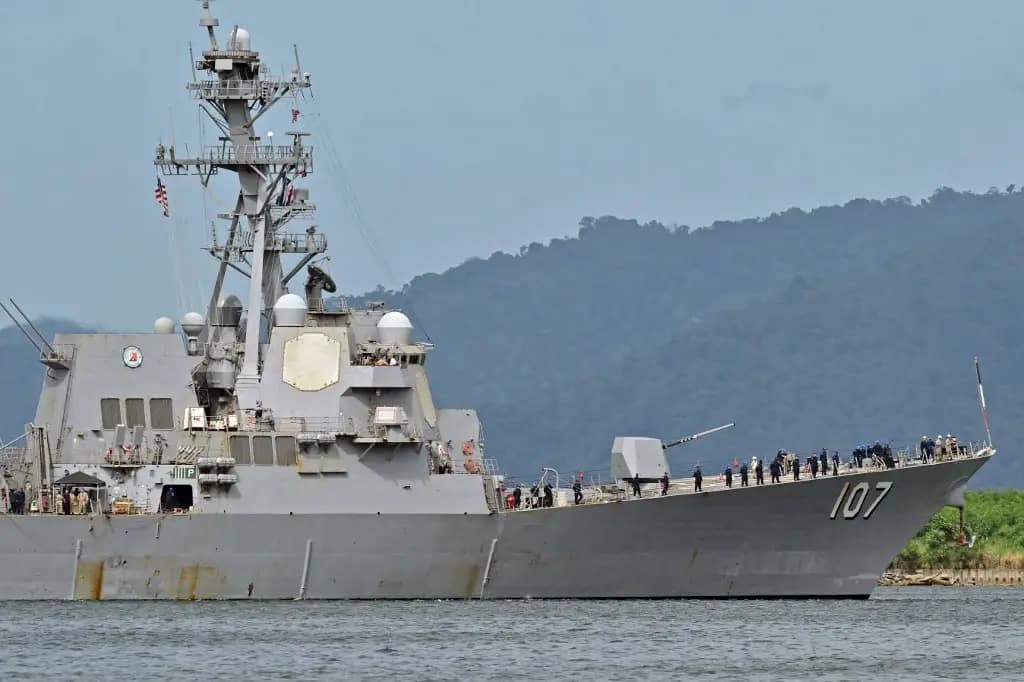The arrival of the USS Gravely, a United States warship, in Trinidad and Tobago on Sunday has ignited a heated debate across the Caribbean region. While Trinidad and Tobago’s Prime Minister Kamla Persad-Bissessar emphasized the importance of safety and security in combating drug trafficking, Barbados Prime Minister Mia Mottley raised concerns over the “menacing military” presence of US vessels in the Caribbean Sea, urging dialogue to prevent potential conflicts. Mottley, speaking at the 86th annual conference of her ruling Barbados Labour Party (BLP), highlighted the region’s vulnerability to external threats, including the looming Hurricane Melissa and the escalating US military build-up. The Trump administration recently announced the deployment of the USS Gerald R Ford, the world’s largest aircraft carrier, to the Caribbean as part of its counter-drug initiative. However, critics argue that this move could be a pretext for a potential land invasion of Venezuela. The US Southern Command claims the enhanced military presence aims to disrupt illicit activities threatening regional security. Meanwhile, Trinidad and Tobago’s Foreign Ministry stated that the USS Gravely’s visit includes joint training exercises with the Trinidad and Tobago Defence Force (TTDF), focusing on tactical proficiency and mutual trust. Persad-Bissessar defended the collaboration, citing the country’s high crime rates and proximity to drug trafficking routes. In contrast, Mottley and former Caribbean leaders, including PJ Patterson and Bruce Golding, reiterated the need to maintain the Caribbean as a “zone of peace,” warning against the destabilizing effects of military escalation. Mottley emphasized the importance of adhering to international law and resolving disputes through peaceful means at the United Nations. The contrasting perspectives underscore the region’s complex challenges as it navigates security concerns and the preservation of peace.
US warship docks in Trinidad amid fears of military aggression in the Caribbean
